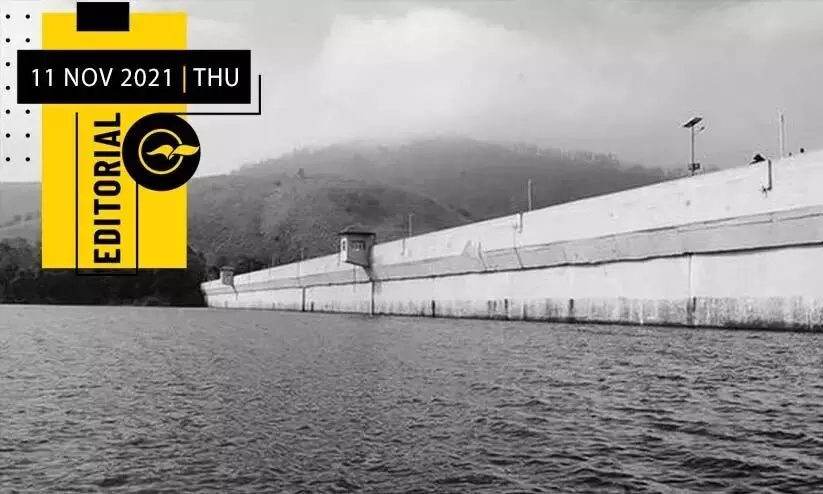
Neighbours must not fight over water
text_fieldsThe confusions pertaining to the Mullaperiyar are getting more intense with every passing day. The latest in the controversy is that Tamil Nadu was given permission by Kerala officials to cut down trees near the Baby Dam in Mullaperiyar and the government did not know about it. The fact that such permission was given without the knowledge of the Chief Minister or other ministers is, of course, an administrative flaw. The Opposition has a legitimate right to ask why you are sitting in that chair and they are celebrating it also. It is a shame that the Kerala administration got to know about the permit when the Tamil Nadu Chief Minister took to social media thanking Kerala for allowing him to cut down trees. At the same time, it is not good for anyone to have this controversy in such a way that even a serious and emotional discussion is not possible.
Emotional campaigns related to Mullaperiyar are often carried out. In 2011, there was a widespread campaign in Kerala that the dam was going to burst and lakhs were going to die. Those were the days when television channels brought their OB vans to Idukki and were constantly giving live reports and analysis. Leaders like PJ Joseph flamed the campaign. It was such an emotional state that one could not say a single dissident word. Stories describing the impact of the 126-year-old dam collapse on Idukki and Ernakulam districts were everywhere. Many have forgotten the fact that the dam underwent comprehensive restoration work in 1979 under the supervision of the Central Water Commission. Now, again, there are campaigns reminiscent of 2011. This time the campaigns are mostly on social media. The political leadership took it up as well. No one is able to approach the subject realistically beyond emotional propaganda.
Even the national parties in Kerala and Tamil Nadu have different views on the Mullaperiyar issue. The strangest of these is the BJP's. The BJP has always claimed that they are the only ones upholding the true nationalist vision. The BJP and its ally AIADMK are the most active in the anti-Kerala campaign in Tamil Nadu today. The Tamil Nadu BJP has alleged that Chief Minister Stalin is not taking a strong stand and is giving in to the interests of Kerala. At the same time, the Kerala BJP is alleging that Chief Minister Pinarayi Vijayan is subordinating the interests of the state to Tamil Nadu! They need to answer the question of how the BJP, which claims to be the only party that stands for nationalism, is taking two completely opposite positions in two adjacent states. The fact of the matter is that there would be no reasonable answer to this. Everyone wants to reap political gains. In the meantime, the growing conflict and mistrust between the two states and thus the two populations is not their issue.
Kerala's basic position on the Mullaperiyar issue is 'water for Tamil Nadu and security for Kerala'. This is a welcome and logical position. Mullaperiyar is not just an emotional issue for Tamils; it is a matter of life and death. It is a problem of water for people across five districts. Therefore, they will take anything that makes them feel like they are missing out on the water of the Mullaperiyar emotionally. Water is one of the basic human needs, whether it belongs to Tamils or Malayalis. Fighting between neighbors for water is not appropriate for a civil society.
Unfortunately, such campaigns are widespread in the wake of the Mullaperiyar controversy. In both states, there is an arrangement for calling those who speak out emotionally spies. In the current national political climate where states are being turned into Union Territories, Kerala and Tamil Nadu are the states that stand strong for federalism and oppose the Sangh Parivar's monolithic concept. The clash between the two states is a matter of joy for the Sangh Parivar. It seems they want the new controversy to rise to such a level. The parties in Kerala and Tamil Nadu should be able to take a stand considering that. It is the duty of the opposition to blame the government and point out the shortcomings. Beyond that, the opposition parties, including the Congress, need to be vigilant as to whether their positions are reinforcing the agendas of others.























